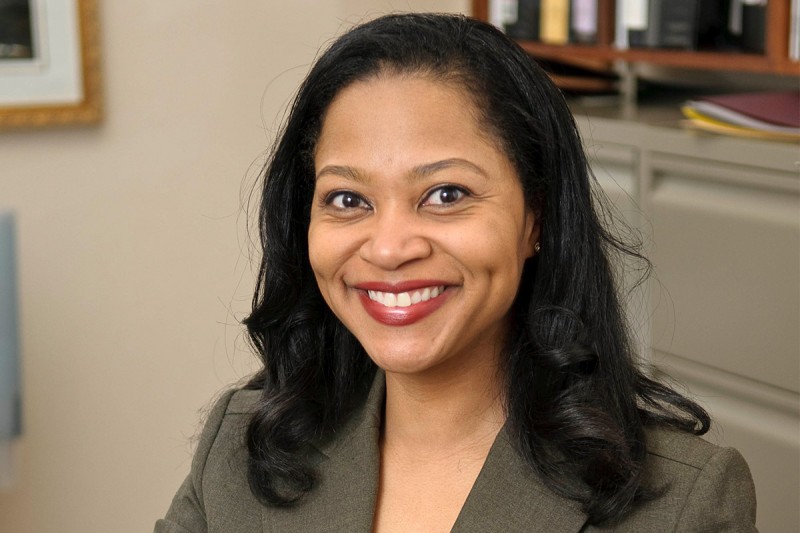
Memorial Sloan Kettering Cancer Center (MSK) is committed not only to providing exceptional cancer care but also to ensuring access to care for everyone who needs it. Unfortunately, some patients — often those whose insurance plan offers a very narrow provider network or those who are underinsured — have trouble shouldering the significant financial burden that can come with a cancer diagnosis. MSK has a special team in place to help these patients with insurance and financial assistance.
Nurses Help Ease the Burden of Paying for Cancer Treatment
MSK’s Patient Financial Services (PFS) department includes case managers and clinical coordinators who help patients navigate the intricacies of insurance and financial assistance. “When you merge business with healthcare, you have to be prepared to manage things a little differently,” says Melanie Steele, MPH, Director of Patient Financial Engagement at PFS. “Our highly trained nurses do exactly that.”

There are 20 registered nurses who work in partnership with administrative staff, insurance carriers, and clinical teams to advocate for patients and help them pay for cancer treatment.
“The role of nurses in finance keeps advancing,” says Carmen Castillo, MSN, RN, Associate Clinical Director at PFS. “And it emphasizes the value nurses contribute to healthcare reform, while also giving nurses the opportunity to increase their knowledge about healthcare regulations, value-based care, healthcare quality, and access.”
With their dual expertise in clinical care and insurance processes, PFS nurses are often able to reduce the number of insurance claim denials and relieve some of the pressure on providers when interacting with insurance companies.
Helping Patients Use Their Insurance To Cover Their Cancer Care
Helping patients navigate the complexities of their health insurance and obtaining authorization before a patient begins cancer treatment are some of the many ways that PFS nurses help patients avoid unnecessary out-of-pocket expenses. Reducing direct patient costs whenever possible is a critical part of decreasing “financial toxicity” — a term for the financial stress that the cost of medical care can sometimes cause patients.
Mei Li, BSN, RN, Clinical Nurse Coordinator for Radiation Oncology in PFS, reviews cases and completes the necessary insurance forms based on established treatment guidelines. Patients are kept informed throughout the authorization process while the team works diligently behind the scenes to relieve patients’ stress and anxiety.
Reducing Out-of-Pocket Expenses for Costly Treatments
Patients also benefit from the expertise of a nurse like Bonita Lee-Smith, MSN, RN, Chemotherapy Clinical Coordinator in PFS. She reviews chemotherapy regimens that require financial clearance.
Her reviews are important for both the patients and MSK. She makes sure that every patient receives the same access to timely, quality treatments, regardless of whether they have Medicaid, Medicare, or private insurance. Additionally, her in-depth reviews ensure that MSK maintains the standards required by the Centers for Medicare and Medicaid Services.
“For those patients where the regimen will not be covered, I am able to immediately work on obtaining treatment through programs that provide compassionate use or funding,” she says. “As cancer drugs can be very expensive, this is a way to lessen the effect of high out-of-pocket costs on the patient.”
Getting the Best Care for Patients, Even Out-of-Network
Nurses who are also case managers play an important role in advocating for patients. They help secure out-of-network authorizations and educate patients about their benefits, the different insurance plans available to them, and financial assistance.
“Once I’ve been assigned a case, I advocate for the patient as if they were one of my loved ones,” says Andreia Marques, BSN, RN, Clinical Nurse Coordinator in PFS. “I remind them that cancer chose them — they didn’t choose cancer. And no matter what, I will facilitate and advocate for them as much as I can.”
She recalls an incident with a patient struggling to coordinate benefits between two insurance companies and Medicare. “I took the bull by the horns,” she says. “I got on the phone with the insurance representatives and their specialists and had them recheck what the benefits should be. The family was so thankful that I looked out for their best interests and pushed back when necessary.”
Many of the nurses who work in financial services have worked previously in clinical settings. They know the best outcomes can depend on eliminating cost barriers and addressing a patient’s financial needs. “Cancer can affect anyone, but it doesn’t affect everyone equally,” says Mei. “Many barriers can impact a person’s ability to prevent, find, treat, and survive cancer.”
Case managers can help patients work the system so they receive the best care.
“I had a patient whose insurance didn’t cover care at MSK, and he needed surgical intervention immediately,” says Elma Thomas, BSN, RN, a case manager. “His MSK doctor recommended a surgeon in the patient’s network. After the surgery, the patient’s sister stayed in contact with me, and I was able to counsel them about other plans he could join to return his care to MSK. Without my guidance, the patient probably would not have been able to receive care at MSK.”
Narrowing the Gap in Healthcare Disparities Across All Communities
The PFS staff advocate for patients who have no one else to speak for them. “I feel that providing everyone, including members of underserved communities, with the same access to care at MSK is gradually narrowing the health disparities gap,” says Elma.
The PFS nurses see themselves as partners with their patients, standing shoulder to shoulder with them during the fight of their lives. And they want to make sure every patient is offered the best chance.
“I truly believe that no one should be disadvantaged in their fight against cancer,” says Andreia. “Everyone deserves a fair fight.”